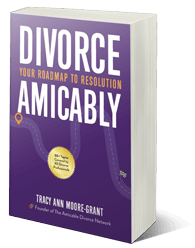The Three Ways to Divorce

Divorce is never an easy decision, but understanding your options can make the process less daunting. If you're contemplating hiring a divorce attorney, it's crucial to know the different paths available, as each can impact the time, cost, and emotional toll involved. In this article, we'll explore three primary ways to divorce: uncontested, amicable, and traditional (or contested). While I'm opinionated that uncontested and amicable approaches are often superior for preserving sanity and savings—provided both parties can cooperate—I'll be honest: not every situation fits neatly into these categories, and professional guidance is key. At Divorce Amicably, we specialize in helping couples navigate these waters smoothly via our platform at divorceamicably.com.
Whether you're aiming for a quick resolution or bracing for a battle, hiring an attorney early can prevent costly mistakes. Let's break it down.
Uncontested Divorce: The Streamlined Path
An uncontested divorce is often the fastest and least expensive option, ideal for couples who agree on major issues like asset division, child custody, and support. In this process, both parties work together to draft a settlement agreement, avoiding court battles. By opting for an uncontested divorce, you can save thousands in legal fees and months of stress. However, it requires mutual cooperation and transparency—both spouses must be upfront about finances and willing to compromise.
Hiring a divorce attorney for an uncontested divorce is still wise, as they can ensure your agreement is legally sound and filed correctly. At divorceamicably.com, we provide resources and professional support to guide you through this process efficiently, ensuring no detail is overlooked. While uncontested divorces are straightforward, don’t skip legal advice—mistakes in paperwork or terms can haunt you later.
Amicable Divorce: Collaboration with Compassion
An amicable divorce takes the cooperative spirit of an uncontested divorce but often involves more negotiation, typically through mediation or collaborative law. This approach suits couples who may have disagreements but are committed to resolving them without hostility. Mediation involves a neutral third party to facilitate discussions, while collaborative divorce includes attorneys for both sides working together to reach a fair settlement. The goal is to minimize conflict and prioritize mutual respect, especially when children are involved.
Hiring a divorce attorney in an amicable divorce ensures your interests are protected while fostering a cooperative environment. At divorceamicably.com, we advocate for this approach, offering tools and professional guidance to help couples navigate negotiations smoothly. An amicable divorce can save time and emotional energy compared to court battles, but it requires both parties to stay committed to fairness—legal counsel helps keep things on track.
Traditional (Contested) Divorce: When Agreement Isn’t Possible
A traditional or contested divorce occurs when spouses cannot agree on key issues, such as property division, alimony, or custody, leading to a court-driven process. This path often involves litigation, where each side presents their case before a judge who makes the final decisions. Contested divorces are typically the most expensive and time-consuming, with legal fees escalating quickly due to court appearances, discovery, and prolonged disputes. Emotions can run high, especially when trust has broken down.
Hiring a skilled divorce attorney is critical in a contested divorce to navigate complex legal procedures and advocate for your interests. While divorceamicably.com promotes less adversarial approaches, we recognize that some situations—such as those involving abuse, financial dishonesty, or irreconcilable differences—require this route. An attorney can help you prepare a strong case, ensuring your rights are protected in court. Be prepared for a longer, costlier process, and seek counsel early to avoid procedural missteps.
Choosing the Right Path with Professional Guidance
Selecting the best divorce path depends on your unique circumstances, including your relationship dynamics, financial complexity, and willingness to cooperate. An uncontested divorce is ideal for those who agree on terms and want a quick, cost-effective resolution. An amicable divorce suits couples who need to negotiate but wish to avoid courtroom drama. A contested divorce, while less desirable, is sometimes necessary when disputes are intractable. Regardless of the path, hiring a divorce attorney is a smart move to protect your interests and ensure legal compliance.
At divorceamicably.com, we’re committed to helping you find the least stressful and most cost-effective way to move forward. Our platform offers resources, professional support, and access to experienced attorneys who can guide you through uncontested or amicable processes with ease. If your situation demands a contested approach, a qualified attorney can still make a significant difference in achieving a fair outcome. My honest take? Start with open communication and explore uncontested or amicable options first—your wallet and well-being will thank you. Visit divorceamicably.com today to take the next step with confidence.
Recent Posts
From the Book: Divorce Amicably
Chapter 7: The 3 Types of Divorce
In order to understand the different ways to get a divorce, it is important to understand the legal system itself. In the United States, Canada, and the United Kingdom, the legal system is an adversarial system. An adversarial court system is a legal system where two opposing parties present their evidence and arguments to an impartial judge or jury, who then decides the outcome...








